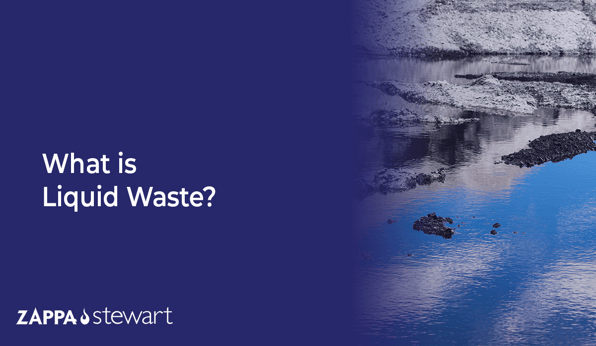The 5-Second Trick For Reclaim Waste
Table of ContentsSome Known Incorrect Statements About Reclaim Waste Reclaim Waste Fundamentals ExplainedUnknown Facts About Reclaim WasteThe 9-Second Trick For Reclaim Waste10 Easy Facts About Reclaim Waste Described
Explore the kinds, occurrences, and forms of fluid waste. Domestic sewage waste refers to the waste and items from a residential septic system. This sort of waste is created by people in houses, institutions, and various other structures. This only includes septic storage tanks that have a drainpipe field. The correct administration and disposal of residential sewer waste need liquid waste to be transferred to a sewage treatment plant where the correct techniques and equipment are related to cleanse and dispose of waste.
Industrial waste often consists of prospective threats, such as combustible materials or a blend of fluid and strong waste products, and needs a much more innovative and comprehensive disposal procedure. The disposal of business waste commonly involves the purification of waste before transport to make certain risk-free and appropriate disposal. Industrial waste is developed from by-products and runoff of commercial procedures and manufacturing.
This type of waste can not use the exact same sewage administration transportation or procedures as septic or commercial fluids. The commercial waste management procedure requires the evaluation and testing of liquid waste before it goes through the disposal procedure (liquid waste disposal). Runoff waste is the liquid waste that comes from drainage and excess stormwater in very inhabited areas or cities
Drainage waste can trigger contamination and flooding if not taken care of effectively. Find out more about sewage system cleansing and waste administration. Making sure correct waste monitoring can avoid catastrophes and decrease ecological injury. Both people in domestic settings and experts in business or manufacturing sectors can gain from understanding the procedures and laws of fluid waste management.
All about Reclaim Waste
Get in touch with PROS Solutions today to learn more about our waste monitoring and disposal solutions and the correct methods to take care of the fluid waste you create.
(https://triberr.com/reclaimwaste1)Do you understand what takes place to your water when you disengage, flush the commode or drain pipes the washing maker? No? Well, it's worth understanding. This so-called 'wastewater' is not just a crucial resource however, after treatment, will certainly be released to our land, rivers or the ocean. Utilized water from bathrooms, showers, baths, cooking area sinks, washings and commercial procedures is called wastewater.

water used to cool equipment or clean plant and tools). Stormwater, a type of wastewater, is overflow that flows from agricultural and city areas such as roofings, parks, gardens, roads, paths and gutters right into stormwater drains, after rain. Stormwater streams unattended directly to local creeks or rivers, eventually getting to the ocean.
See This Report on Reclaim Waste
In Queensland, most wastewater is treated at sewer therapy plants. Wastewater is delivered from domestic or industrial websites with a system of sewage systems and pump stations, called sewerage reticulation, to a sewer therapy plant. Local federal governments construct, keep and operate most sewer treatment useful link plants. Operators are licensed under the Environmental Security Act 1994 to release cured wastewater at an acceptable ecological standard right into rivers.
The Division of Natural Resources encourages local federal governments regarding handling, operating and maintaining sewage systems and treatment plants. In unsewered locations, local governments might need homeowners to mount specific or household sewer therapy systems to treat residential wastewater from toilets, kitchens, restrooms and laundries. The Division of Natural Resources authorizes the use of house systems when they are verified to be reliable.
In some brand-new subdivisions, therapy of some stormwater to get rid of clutter, sand and gravel has begun making use of gross toxin catches. Wastewater therapy happens in four phases: Eliminates strong issue.
Makes use of little living organisms knows as micro-organisms to damage down and eliminate continuing to be liquified wastes and great fragments. Micro-organisms and wastes are integrated in the sludge.
What Does Reclaim Waste Do?
Nutrient removal is not available in all sewage treatment plants since it requires expensive specialist devices. It is becoming extra usual in Queensland. Clear fluid effluent generated after treatment may still consist of disease-causing micro-organisms. If this effluent is released into waterways such as rivers or the sea, the micro-organisms will at some point die out.

This normally suggests wastewater needs to be treated or contaminants eliminated prior to it can be discharged to rivers. Many wastewater streams into the sewerage system. Under the Act, city governments administer authorizations and licences for eco pertinent tasks (Ages) entailing wastewater launches that might have a regional influence. The division administers authorizations and permits to ERAs involving wastewater releases that could have a local or statewide impact.
The Facts About Reclaim Waste Uncovered
Or else, examples are considered laboratory analysis. Commonly lots of examinations are needed to develop the degrees of each of the various toxins such as oils, heavy steels and chemicals in water. Tracking provides accurate information regarding water quality and can verify that licence problems are being met. The details acquired via monitoring supplies the basis for making water top quality choices.